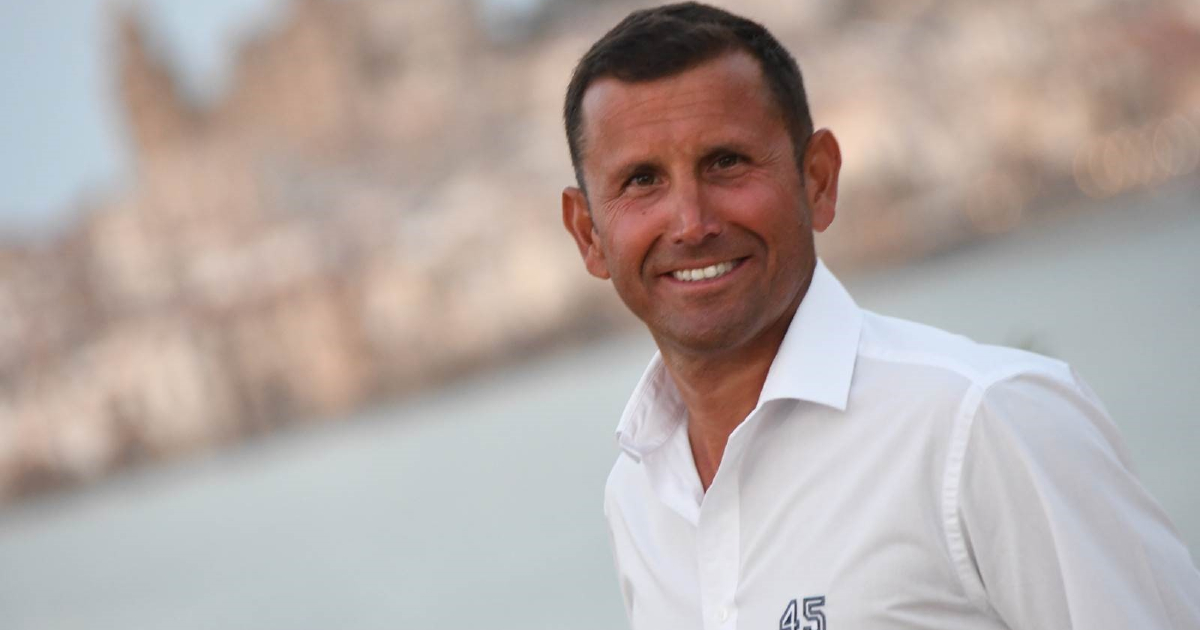Two Minutes With…Paul Chedzey, relationship director, WorkLife by OpenMoney

We catch up with Paul Chedzey, WorkLife’s new relationship director, on changes in the advice and benefits sector, the rise of understanding for the importance of wellbeing, and why Octo Members is his essential reading.
Tell us a bit about yourself and WorkLife
I recently joined WorkLife to head up the employee benefits (EB) and IFA channel.
WorkLife is a new product that allows small- and medium-sized employers, who wouldn’t historically have been able to provide benefits and support to their staff, access to financial, physical, and mental wellbeing through a workplace platform.
Personally, I’m just about under the 50-year-old milestone. I’m married with two grown-up children and I live in London. I’ve got over 30 years’ experience in financial services, working as a financial adviser, at product providers and tech firms.
Why should financial advisers be encouraging corporate clients to prioritise employee benefits?
I’d probably flip that around the other way and say: “Why should advisers’ corporate clients be giving their employees a benefits package?”
The answer: Wellbeing in all its shapes and sizes has really come to the fore during lockdown and for firms to attract and keep the best staff, it will be critical to show that they care about their employees.
As to why IFAs should prioritise – if they don’t start talking to those firms, then undoubtedly someone else will, either directly or through their accountant or payroll supplier.
What does financial services / benefits sectors get right, and what needs improving?
More broadly as an industry there is lots we do right and have improved in.
Charging is now clearer (if not always clear…) and selling products has moved to true financial planning. But it’s still only the top end of the market that gets access. EB firms typify this.
For personal advice they are interested in the directors or the highly paid, yet the other 90%+ of employees still need access to financial advice. It’s just been either unprofitable for the adviser – or too expensive for the employee.
How has the current situation changed working habits, either on a personal or industry level?
The obvious one is working from home. This hasn’t changed for me as much as others – I’ve been doing home-based jobs for years – but for the vast majority they have had to adapt to working in a very different environment.
For some I think they have loved and embraced it. For others – and especially those who live alone – I think it has been really tough.
As an industry I think we have adapted pretty well. Technology has been key to this, and the rise of Zoom, Skype and Teams has meant that we have started using it for what it was really designed for – and reaped the benefits.
That said I really miss seeing colleagues and clients face-to-face. It’s the bit of my job I enjoy the most and can’t wait to start meeting people in person again.
Once lockdown is over, what do you think will change and what will stay the same?
I don’t think anything ever stays the same.
Things will be different for sure and there will be a happy balance between 100% remote working and people going back to offices. It will be interesting to see how long it takes the City to get back to anything like what it was like at the beginning of 2020.
What positives have you taken from the whole lockdown experience?
I see (albeit virtually) much more of family and friends. I speak to them all at least once a week and really hope to continue that once we are back to being able to spend more quality time with them in person.
Is there a book or podcast that is essential reading/listening for your industry?
I’m not a great podcast listener. And I find with journals that I’m only really interested in a small percentage of the content.
So, I tend to look out for interesting articles via Twitter or LinkedIn and regularly check into see what has been posted on financial services social network Octo Members.
Who has single-handedly made your industry better?
There are many people from within the industry that have, between them, made things better. But I don’t think there is a single person.
If I had to choose someone I’d probably go for Martin Lewis. Love him or hate him, he is a champion for the ‘man or woman on the street’ and is passionate about them getting the best advice when it comes to financial wellbeing.
If you could give a younger version of yourself one piece of financial advice, what would it be?
Invest in Amazon. What that means more broadly is I would have taken on more risk when I was younger.
When you’re young it’s easy to go along with the products you’re given and to just forget about long-term wealth, but really, it’s the time in your life when you can afford to make more ambitious investment decisions.
What would you do if you were head of the FCA for the day?
Make it mandatory for advisers to pass on clients that they don’t want, to someone who does want to do something for them.
What is the one column or website that you read every day?
For industry updates and interesting topics, I tend to use Octo Members, as it has a wealth of interesting stories and people on the platform. I also get alerts from publications like Money Marketing, but I don’t look at them daily.
One place I do go every day is BBC and Sky Sports because I’m a big sports fan!
What would you do if you received a windfall of £10,000?
Buy a piece of art from a local or up-and-coming artist, take my wife to our favourite restaurant Chez Bruce, and give the rest to my kids.
